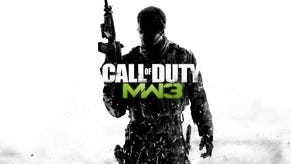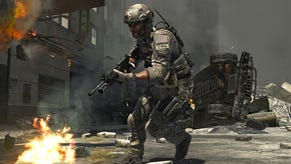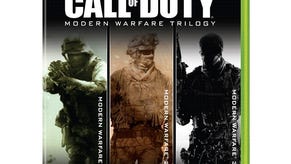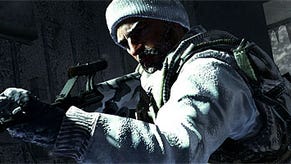Analyst: Consumers have issues differentiating between MW3 and other shooters
Analyst Stephen Cheliotis is of the opinion the Call of Duty brand is unable to compete with large film brands due to the majority of the public thinking games from the same genre look similar to one another.
Speaking with Eurogamer, Cheliotis, who is chief executive of The Centre for Brand Analysis and chairman of the UK Superbrands and CoolBrands Councils, said brand awareness for the public isn't as distinguishable as it is for gamers.
"If you look at awareness they're not quite up there with the likes of Star Wars or Harry Potter or Lord of the Rings," he said. "Outside of the real keen gamers there's a bit of confusion between different types of game franchises.
"For those that are part-time gamers or loosely interested but not necessarily real keen players, they mould a little bit into one. With the latest release, they say, 'is that part of that franchise or is it that one? I can't really remember'."
Cheliotis said people don't really struggle with telling the difference between Star Wars or any other large film franchises such as LotR, Twilight, and Harry Potter despite each being part of the same "fantasy adventure" genre. Therefore, he believes this lack of recognizability will continue to hold larger shooter franchises back in terms of longevity.
"It's just one of those big franchises and it's a military shooter, and they're all kind of the same," said Cheliotis. "I don't think people say, 'Call of Duty is this, and this other one is that'.
"That's the difference. They blur. That's where you've got a brand issue. There's not much to distinguish them for the average player that's just jumping in and out."
Cheliotis said there is still room for growth with the Call of Duty brand, and it would be more distinguishable to the general public should Activision decide to work on the brand-side more and continue implementing social aspects, without turning it into something generic in order to have "a bit of everything for everyone."
"When you're doing brand analysis, it's good that some people don't like you," he said. "It means you have a point. It creates longevity and doesn't mean you're a jack of all trades.
"If you've got something that's so generic and bland and dull that everyone might like it, then you're in the longer term in danger of being so catch-em-all that you're not creating long-term followers.They might be better off focusing on what they're really good at and hone that down and be known for that."
Cheliotis goes on to say the games industry at large should focus more on brand awareness, by possibly taking a chapter out Nintendo and SEGA's books with Mario and Sonic, respectively.
"It's a real struggle with games," he said. "You've got Sonic. You've got Mario. You haven't got a lot of other brands that are truly distinctive and stand out. You might have a few point in time ones, but generally, as long term brands that have longevity and true differentiation, there are not many examples.
"When you think that the industry is bigger than music and film, it's quite surprising. They're clearly massive successes, and they've got decent awareness and familiarity. They do cut through more than they used to in terms of across the board different demographics, but I still think they all blur into one.
"For your casual gamer walking into Tesco, and just buying their game alongside their milk and veg, there's a bit of, 'oh, I don't know if that's for me'."
It was announced this week that the five-day total for Modern Warfare 3 had bested theatrical box office, book and videogame sales records in worldwide sell-through dollars with $775 million pulled in for the period.










